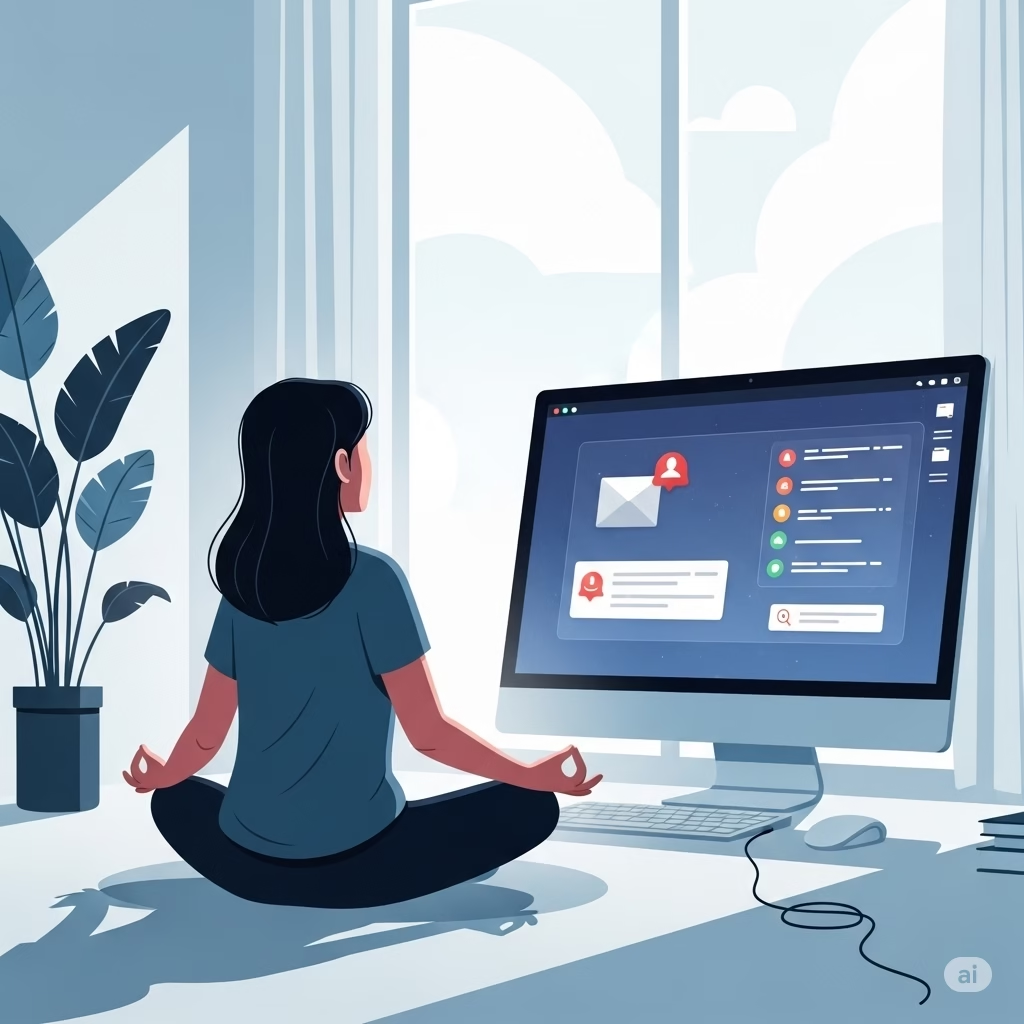In an age of constant connectivity, our digital lives can quickly become chaotic. From overflowing inboxes to endless app notifications and cluttered desktops, the digital noise never stops. While we often declutter our physical spaces, our digital environments are just as important for our mental well-being. Decluttering your digital life can significantly reduce anxiety, enhance focus, and help you reclaim your time and peace of mind.

Why Digital Decluttering Matters
A messy digital space drains more than just your device’s storage—it drains your energy. Constant pings and visual clutter overstimulate the brain and fragment your attention. Studies have shown that digital overload can lead to stress, sleep issues, and decreased productivity. By taking control of your digital environment, you free up mental bandwidth for what truly matters.
Also Read: The Enduring Nature of Love vs. the Transience of Money
Simple Steps to Get Started
✅ Unsubscribe from Unwanted Emails
Go through your inbox and unsubscribe from newsletters or promotions you no longer read. Tools like Unroll.Me make this process easier and faster.
✅ Delete Unused Apps
If you haven’t used an app in the past month, it’s likely you don’t need it. Free up space—and attention—by deleting it.
✅ Limit Social Media Usage
Set daily usage limits or schedule specific times to check your accounts. Apps like Freedom or Digital Wellbeing can help you track and reduce screen time.
✅ Organize Digital Files
Create folders for your photos, documents, and downloads. A clean file system saves time and reduces digital stress.
✅ Turn Off Non-Essential Notifications
Every ding or buzz interrupts your focus. Disable notifications that aren’t urgent or meaningful.
The Peace of a Minimal Digital World
Just like a tidy room can soothe the mind, a decluttered digital space creates a calm, productive mental state. You don’t need to disconnect entirely—you just need to be more intentional. Start small and build momentum.
🔗 Explore more digital wellness practices in this guide by Center for Humane Technology.




